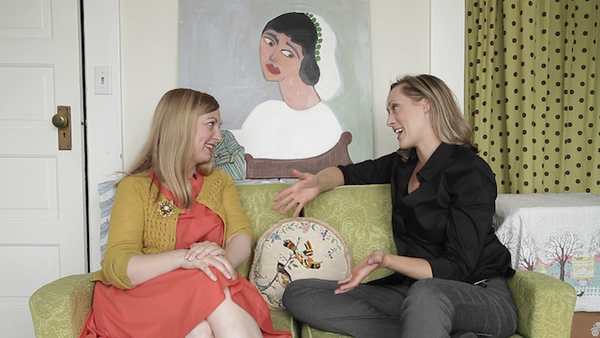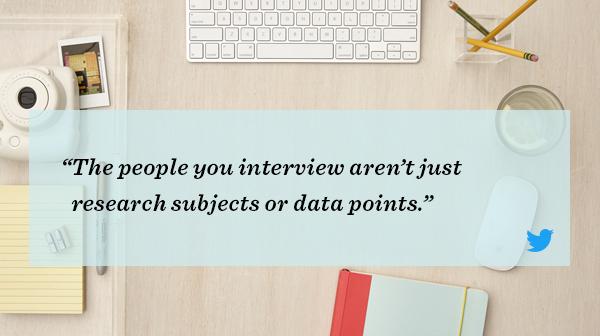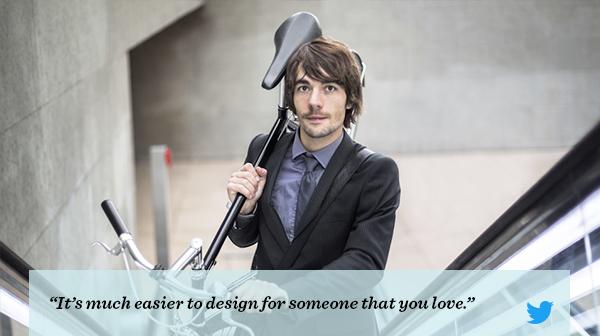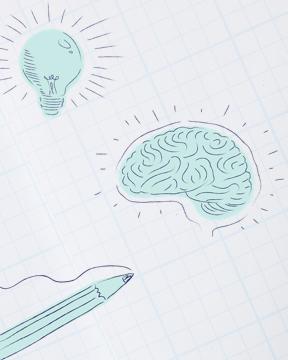6 Tips from IDEO Designers on How to Unlock Insightful Conversation
Having recently joined IDEO, I was fascinated by the way design researchers can enter any situation, and instantly make people feel at ease. They can interview anyone, from wounded veterans to wedding planners, and encourage them to open up and share their unfiltered opinions. These genuine encounters are incredibly important to our work because they allow us to develop the empathy we need to design for specific user groups. Empathy is essential for uncovering deep insights and ultimately creating novel, game-changing products and services.
I talked to our design research community across all our studios and asked them for insights on how they have such meaningful conversations with others. During this process, I uncovered some fascinating and unexpected tips on how to make people feel more comfortable.

- Always say yes to an offer. Whether the other person offers you a glass of water, snacks, or even a tour of their home, you should always accept. This small gesture allows you to transition from a researcher to a guest in their home. It’s always important to spend time building rapport, even if your initial conversation feels completely off-topic. Later, when you actually dive into your research questions, the conversation will flow more freely.
- Wear generic clothing. Oftentimes, clothing can communicate social status, or reflect personal taste that others may disagree with. It’s better to make yourself as neutral as possible so that you can fit in with people of all backgrounds. Try to avoid wearing logos or looking too fancy.

- Treat people like partners in research. The people you interview aren’t just research subjects or data points. Instead, you should be transparent with them and show that you value their input. Their stories and feedback play a huge role in what we end up designing, so it’s great to let them know why they are a fundamental part of our project.
- Leave comfortable silences. When it seems like the other person is done speaking, most people feel the need to immediately move on to the next question. Instead, you should create some space by just nodding and writing things down—it gives the other person room to continue speaking beyond the parameters of the previous question, and perhaps reveal information about themselves that you wouldn’t learn otherwise.

- Take the spotlight off the other person. As part of our design process, we like to bring provocations into research sessions. This means that we sketch out rough concepts to show the other person, and ask them for feedback. By shifting our attention from the person to another object, we can remove any pressure they're feeling. These outside objects also allow participants to communicate in a nonverbal way—the way they interact with them can reveal tacit attitudes or behaviors. As a side bonus, you get to bring home some tangible artifacts that you can refer back to during the design process.
- Try very intentionally to fall in love with each person (even if it’s just a little bit). Even if you don’t naturally click with someone, you can always find something you truly appreciate about them, whether it’s their voice or their passion for the topic at hand. When you want to fall in love with someone, everything changes—your curiosity about their life story, your body language, and your empathy toward their situation. These small shifts will show your interviewee that they don’t have to perform or show the “best” parts of themselves, because they can tell that you're deeply on their side. Even after the interview, you'll find yourself coming up with better ideas because it’s much easier to design for someone that you love.
Even if you’re not a design researcher, these tips and tricks can help whenever you meet someone new, whether you’re in an interview or simply chatting with a stranger. Get out there and experiment with these tactics—there’s always so much to learn.
For more IDEO observation and interview techniques check out our online course Insights for Innovation.
----
- choosing a selection results in a full page refresh
- press the space key then arrow keys to make a selection




